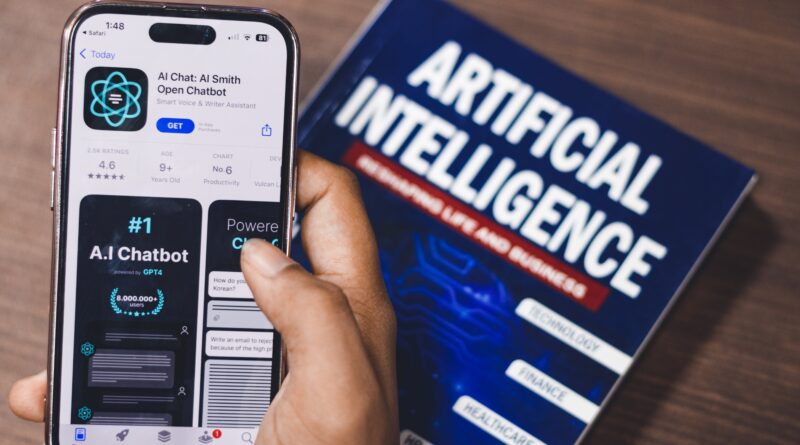6 Ways AI Could Disrupt Your Business in 2024
6 Ways AI Could Disrupt Your Business in 2024. Artificial Intelligence (AI) has become a transformative force in various industries, reshaping traditional business models and processes.
As businesses strive to stay competitive in today’s rapidly evolving landscape, understanding the potential disruptions caused by AI is crucial.
Introduction to AI in Business
In recent years, AI has emerged as a powerful tool for businesses, enabling them to automate tasks, analyze data, and enhance decision-making processes. From chatbots handling customer inquiries to predictive analytics driving marketing strategies, the applications of AI are vast and diverse.
Understanding AI Disruption
Definition and Scope
AI disruption refers to the significant changes and transformations brought about by the integration of artificial intelligence technologies into business operations. This disruption spans across various facets of a business, including operations, customer experience, and workforce dynamics.
Importance of AI in Business

The importance of AI in business cannot be overstated. It enables companies to streamline processes, gain valuable insights from data, and deliver personalized experiences to customers, ultimately driving growth and competitiveness.
Ways AI Could Disrupt Your Business
Automation of Processes
One of the most significant ways AI could disrupt your business is through the automation of repetitive tasks. AI-powered systems can handle routine operations with efficiency and accuracy, freeing up human resources to focus on more strategic initiatives.
Enhanced Customer Service
AI-driven chatbots and virtual assistants are revolutionizing customer service by providing instant support and personalized interactions round the clock. This level of responsiveness and efficiency can significantly enhance the overall customer experience.
Data Analysis and Insights
AI algorithms can analyze vast amounts of data in real-time, extracting valuable insights that can inform strategic decision-making. From identifying market trends to predicting consumer behavior, AI-powered analytics offer a competitive edge in today’s data-driven business landscape.
Personalization of Products and Services
AI enables businesses to personalize products and services based on individual customer preferences and behavior. By leveraging data analytics and machine learning algorithms, companies can tailor offerings to meet the unique needs of each customer, thereby increasing satisfaction and loyalty.
Competitive Advantage
Businesses that harness the power of AI gain a significant competitive advantage in the market. Whether it’s through process optimization, improved customer experiences, or innovative product development, AI-driven strategies can set companies apart from their competitors.
Potential Job Displacement
While AI presents numerous opportunities for businesses, it also raises concerns about job displacement. As automation becomes more prevalent, certain roles may become obsolete, requiring organizations to reskill their workforce to adapt to changing job requirements.
Adapting to AI Disruption
To effectively navigate AI disruption, businesses must be proactive in adapting to change and embracing new technologies.
Embracing Change
Embracing change is essential for staying ahead in today’s dynamic business environment. Companies that are open to adopting AI technologies and integrating them into their operations are better positioned to thrive in the long run.
Investing in AI Technology
Investing in AI technology is crucial for businesses looking to leverage its benefits fully. Whether it’s implementing AI-powered software solutions or developing custom AI applications, allocating resources to technological advancements is key to staying competitive.
Reskilling Workforce
As AI transforms the nature of work, businesses must invest in reskilling their workforce to meet evolving demands. Providing training and development opportunities that equip employees with the necessary skills to work alongside AI technologies is vital for organizational success.
Ethical Considerations
Amidst the rapid advancement of AI, businesses must also consider ethical implications related to data privacy, algorithmic bias, and the societal impact of AI-driven decisions. Implementing ethical guidelines and frameworks ensures responsible AI deployment and fosters trust among stakeholders.
Case Studies of AI Disruption
Examining real-world examples of AI disruption across various industries provides valuable insights into its potential impact and benefits.
Industries Affected
AI disruption spans across industries such as healthcare, finance, retail, manufacturing, and transportation, transforming business processes and driving innovation.
Success Stories
Companies like Amazon, Google, and Netflix have successfully leveraged AI to enhance customer experiences, optimize operations, and drive business growth, setting a precedent for others to follow.
AI has the power to disrupt businesses in profound ways, from automating processes to personalizing customer experiences. By understanding the potential impact of AI disruption and proactively adapting to change, businesses can position themselves for success in an increasingly AI-driven world.
How can small businesses leverage AI technology?
Small businesses can leverage AI technology in various ways to improve efficiency, enhance customer experiences, and stay competitive. Some examples include using AI-powered chatbots to handle customer inquiries, implementing machine learning algorithms for data analysis and forecasting, and incorporating AI-driven marketing tools for personalized targeting and engagement.
What are some ethical considerations businesses should keep in mind when implementing AI?
When implementing AI, businesses must consider ethical implications such as data privacy, transparency, fairness, and accountability. It’s essential to ensure that AI systems are trained on unbiased data, respect user privacy rights, and provide transparent explanations for their decisions. Additionally, businesses should establish clear guidelines for responsible AI use and regularly assess the societal impact of their AI-driven initiatives.
Will AI completely replace human workers in the future?
While AI has the potential to automate certain tasks and roles, it’s unlikely to completely replace human workers in the foreseeable future. Instead, AI is expected to augment human capabilities, enabling workers to focus on higher-level tasks that require creativity, critical thinking, and emotional intelligence. Businesses will still need human expertise to oversee AI systems, interpret results, and make strategic decisions.
How can businesses measure the ROI of AI investments?
Measuring the return on investment (ROI) of AI investments involves assessing both quantitative and qualitative factors. Businesses can track key performance indicators (KPIs) related to cost savings, revenue generation, productivity improvements, and customer satisfaction. Additionally, qualitative metrics such as employee satisfaction, innovation velocity, and brand perception can provide valuable insights into the broader impact of AI initiatives on the business.
What role does data security play in AI deployment?
Data security is paramount in AI deployment to protect sensitive information and ensure regulatory compliance. Businesses must implement robust cybersecurity measures to safeguard data throughout its lifecycle, including encryption, access controls, and regular audits.
Additionally, businesses should prioritize data governance practices to maintain data integrity, transparency, and accountability in AI-driven processes.
As businesses navigate the complex landscape of AI integration, it’s essential to prioritize data security to mitigate potential risks and ensure compliance with regulations such as the General Data Protection Regulation (GDPR) and the California Consumer Privacy Act (CCPA).
By implementing robust data security measures and adhering to best practices, businesses can build trust with customers and stakeholders while leveraging the transformative power of AI technology.
The disruptive potential of AI in business is vast and multifaceted, touching every aspect of operations, customer interactions, and workforce dynamics. By understanding the various ways AI could disrupt businesses and proactively adapting to these changes, organizations can position themselves for success in an AI-driven future.
Embracing innovation, investing in technology, reskilling the workforce, and prioritizing ethical considerations are essential steps for businesses looking to harness the full potential of AI while mitigating associated risks.
As AI continues to evolve and shape the business landscape, businesses must remain agile, adaptable, and ethically conscious to thrive in an increasingly AI-driven world.
6 Ways AI Could Disrupt Your Business in 2024 . As AI technologies continue to evolve, businesses must stay abreast of the latest developments and trends to remain competitive. Continuous learning and adaptation are key as AI disruption reshapes industries and creates new opportunities for growth and innovation.
Additionally, fostering a culture of innovation and experimentation within the organization can facilitate the adoption of AI technologies and drive meaningful change. Encouraging employees to explore new ideas, collaborate across teams, and embrace emerging technologies fosters a dynamic environment conducive to AI-driven transformation.
Furthermore, collaboration with external partners, such as AI startups, research institutions, and industry experts, can provide valuable insights and resources to support AI initiatives. 6 Ways AI Could Disrupt Your Business in 2024. By leveraging external expertise and networks, businesses can accelerate their AI journey and unlock new possibilities for business transformation.
In summary, AI disruption presents both challenges and opportunities for businesses across various industries. By understanding the potential impact of AI, embracing innovation, fostering a culture of experimentation, and collaborating with external partners, businesses can navigate the complexities of AI disruption and emerge stronger and more resilient in the digital age.
The disruptive potential of AI in business is undeniable. From automating processes to enhancing customer experiences and driving innovation, AI has the power to reshape industries and revolutionize traditional business models. However, navigating AI disruption requires careful consideration of ethical implications, investment in technology and workforce development, and a willingness to adapt to change.

Businesses that embrace AI as a catalyst for growth and innovation, rather than a threat, can unlock new opportunities for success in an increasingly digital and data-driven world. By prioritizing ethical AI deployment, investing in technology and talent, fostering a culture of innovation, and collaborating with external partners, businesses can harness the full potential of AI to drive sustainable business transformation.
As we look to the future,6 Ways AI Could Disrupt Your Business in 2024 . it’s clear that AI will continue to disrupt businesses across industries. By staying informed, agile, and ethically conscious, businesses can not only survive but thrive in an AI-driven world.

